Ensuring that buildings perform as efficiently as possible has never been more important.
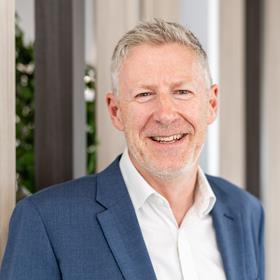
Growing awareness of climate change and the need to achieve net zero carbon by 2050 means that people are increasingly taking an interest in energy efficiency, something that has been turbocharged in recent months by spiralling energy costs.
For the most part, the focus of the debate tends to be on individual houses and measures such as insulation and solar panels. However, at Glide we believe that there are huge opportunities to drive efficiencies in multi-occupational residential blocks through the use of smart technology, something that is particularly true for purpose-built student accommodation (PBSA). Here’s why.
Glide is not a property company or sustainability consultancy, at least not in the traditional sense. At our core, we are an internet and telecommunications infrastructure provider, with a specialism in offering bill-splitting services to homes in multiple occupation. Over the years, we have also become the market leader in providing services to PBSA developers and owners, as well as traditional halls of residence.
One of the defining features of those types of buildings is that they have transient populations, with hundreds of people moving in and out every year. It is simply impractical for all those people to organise their own internet services, so it makes sense to approach the matter at a whole building level. After all, residents are often living away from home for the first time and, these days, have a justifiable expectation that a high-quality internet connection will be available. The situation is the same for build-to-rent (BTR) developments.
At Glide, we think we are ideally placed to help landlords with their digital transformation journey. After all, we already provide that base layer of connectivity, and we know we can use that connectivity to the benefit of users and operators
What that means is that our clients are the building owners, whether that is universities or private sector landlords. Due to our scale, our network of partners is extensive – in total, we provide services to buildings containing just shy of 300,000 bedrooms. As a result, we have hundreds of established relationships and are always looking for opportunities to provide an even better service in order to maintain those relationships.
Working out how we can use our skills base and infrastructure to create more efficient buildings is the obvious next step for Glide as a business. After all, buildings have huge environmental footprints and even with the government’s price cap, energy bills are still going to double this winter compared with last year, with little likelihood that they will come back down any time soon.
It also has to be said that the government appears to be less interested in lowering costs for businesses than households – and PBSA and student halls are classified as the former when it comes to energy contracts, despite serving a domestic audience. The same problem applies to BTR developments or indeed any apartment block where the contract is with the building owner or manager rather than individual households.
Duty of care
Universities and PBSA owners are also increasingly aware of their duty of care towards students. Young people may not be the first group to come to mind when thinking about those worst hit by the energy crisis, but the fact is that these are people living away from their family homes for the first time, often arriving without knowing anybody. They can be extremely vulnerable, so providing somewhere safe, warm and affordable is a prerequisite. Using cutting-edge technology to make buildings more efficient can play a key part of the solution.
Digital transformation is really about using technology to make sure that we properly understand how buildings are functioning and how they are being used by residents. At the moment, that simply is not being done in the vast majority of cases. However, once a building owner is equipped with that information, operators and users can make intelligent decisions in areas such as heating, cooling and maintenance.
At Glide, we think we are ideally placed to help landlords with their digital transformation journey. After all, we already provide that base layer of connectivity, and we know we can use that connectivity to the benefit of users and operators. As a result, we have set up what we call Glide Labs, which enables us to demonstrate and showcase different technologies and how they can be used in buildings.
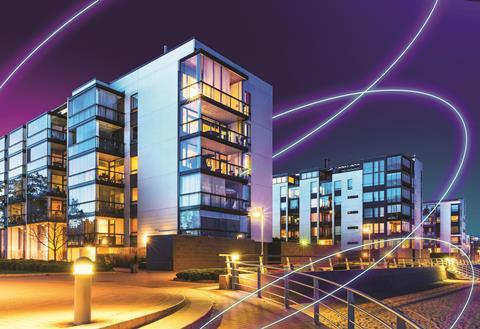
For instance, it allows us to look at various aspects of how comfortable a building is for its users, which includes monitoring things like air quality. After all, numerous workplace studies have demonstrated the importance of air quality when it comes to productivity. Having good-quality air is also critical to ensuring students can concentrate and get the most out of their university experience.
However, the issue of the day is undoubtedly energy. By monitoring how a building is being used, you can start to make efficiency savings. Some of these ideas have been tried and tested for many years, such as when needing to insert your key card in a hotel room in order to provide electricity. Such systems represent a simple way to ensure that lights are not left on when they are not needed, thereby saving energy and money.
Other solutions are more sophisticated. We can monitor how whole building systems, heating and cooling for example, are running over time and immediately see if there are unusual surges in energy use. That can indicate that part of the system is not operating as it should and requires maintenance. It is far more efficient and less expensive to deal with a problem before a system breaks down entirely. It is also infinitely less disruptive for residents.
Equally, we can benchmark buildings against each other and provide robust evidence on which buildings in a portfolio could benefit most from investment in energy efficiency. When you add up all the different ways in which inefficiencies can creep into how a building is operating and then extrapolate it out across a portfolio, the amount of energy and, therefore, money that is being wasted can be eye-watering.
By understanding and addressing these issues, landlords can benefit from significant savings in terms of running costs. From our work to date, we can demonstrate that savings of 10% to 15% on energy bills are perfectly possible. At that level, demonstrating return on investment to a landlord’s decision-makers becomes significantly easier.
What’s more, once the costs of investing in digital transformation and energy efficiency measures have been recouped, a proportion of those savings can be passed on to students who may well be struggling with the cost-of-living crisis. After all, inflation is currently hovering around 10% and is significantly higher when it comes to some staple foods.
Finally, it has to be acknowledged that the systems that we have created at Glide Labs have the potential to produce such a variety and volume of data that it becomes overwhelming for operators. Certainly, some proptech companies have become unstuck by presenting solutions to potential clients that are just too complicated. Instead, our approach is to simplify everything as much as possible and produce systems that a typical operator can use on a day-to-day basis.
Of course, there are companies out there that offer similar intelligent buildings solutions. However, we believe that the suite of products we have developed and continue to develop is unique in terms of its scope. Moreover, our solutions are all based on our technology that our clients have already installed. Digital transformation, it turns out, does not have to be disruptive or complicated.

About Glide
Glide is a market-leading infrastructure and utilities business, delivering hyperfast connectivity across the UK and Europe and operating in sectors such as student and build-to-rent accommodation, shared HMO living and business parks.
We do the complex things that the giants cannot, operating in areas that are difficult to access and difficult to service while enabling devices, buildings and cities to become smarter.
With our own national full-fibre network reaching over 100,000 premises, we create better internet experiences through best-in-class fast and reliable broadband services, cabling expertise, smart technology and data insight.






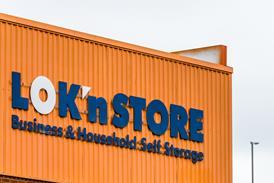
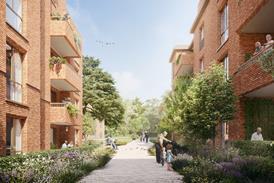
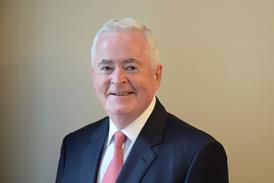





















No comments yet